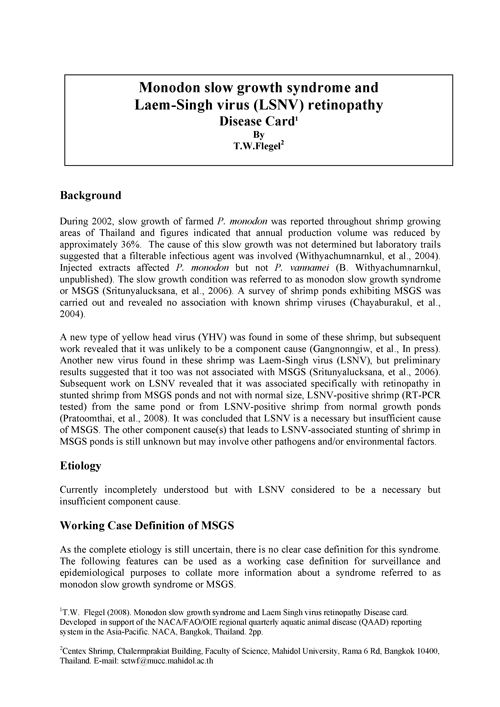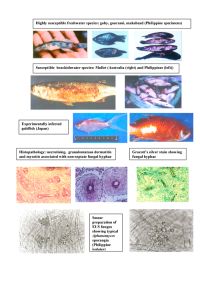Monodon slow growth syndrome and Laem-Singh virus retinopathy: Disease card
26 November 2008 | T.W. Flegel | 1655 Downloads | .pdf | 21.52 KB | Health and Biosecurity, Shrimp
During 2002, slow growth of farmed Penaeus monodon was reported throughout shrimp growing areas of Thailand and figures indicated that annual production volume was reduced by approximately 36%. The cause of this slow growth was not determined but laboratory trails suggested that a filterable infectious agent was involved (Withyachumnarnkul, et al., 2004). Injected extracts affected P. monodon but not P. vannamei (B. Withyachumnarnkul, unpublished). The slow growth condition was referred to as monodon slow growth syndrome or MSGS (Sritunyalucksana, et al., 2006). A survey of shrimp ponds exhibiting MSGS was carried out and revealed no association with known shrimp viruses (Chayaburakul, et al., 2004). This disease card provides an overview of present knowledge of this condition.
Creative Commons Attribution.

